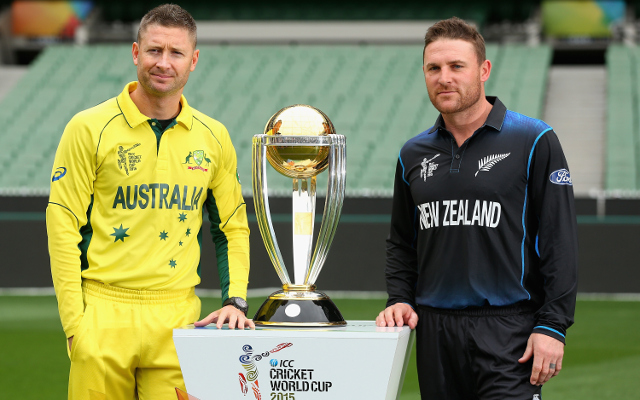Australia captain Michael Clarke has announced that he will retire from one-day internationals after Sunday’s World Cup Final against New Zealand in Melbourne, reports the BBC.
READ MORE:
Cricket World Cup: Australia captain Michael Clarke says loss to New Zealand was a ‘turning point’
(Video Highlights) Steve Smith stars as Australia reach Cricket World Cup final with 95-run win over India
(Video) Cricket World Cup: How’d they hear that? Australia claims wicket against India after brilliant review
The 33-year-old only decided to call it a day over the past week, but will have the opportunity to lead his side to their fifth victory in the tournament’s history before he bows out.
Clarke will play his 245th international in the green and gold at Melbourne, and has scored nearly 8,000 runs in that time. But, he stated that he made the decision because he couldn’t see himself leading the side at the next competition in 2019.
“I asked myself if I thought I would be playing in the next World Cup and I don’t think I will be,” he admitted.
The batsman has had a long history of injury problems that have threatened to blight his career. But he will lead the Test team into this summer’s Ashes series, and has given no timescale over how long he intends the play the longest form of the game.
“I leave the one-day team in a better place than when I took over the captaincy and it gives me my best chance to prolong my Test career,” he added.
Speculation has now turned to who shall replace Clarke as skipper. George Bailey has the most experience as captain, but may miss out on the appointment.
The 32-year-old led the side during their emphatic victory over England in their opening game of the tournament, but bizarrely was dropped once Clarke returned from a hamstring injury, with his form not strong enough to get into the side as a specialist batsman.
Therefore, the Australian selectors may turn to Steve Smith, who captained the side three times during their Test series against India in the winter. The 25-year-old didn’t appear to be fazed by the burden of leadership, breaking plenty of records, including the most runs scored in a series against the Indians, with his total of 769 eclipsing the previous best set by the great Sir Don Bradman.

COMMENTS